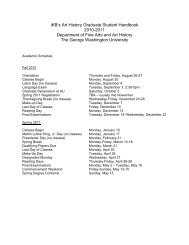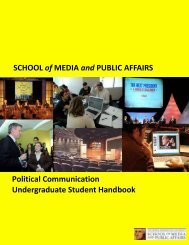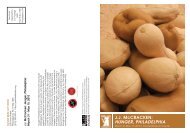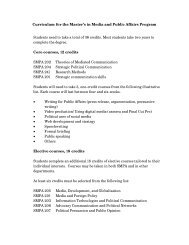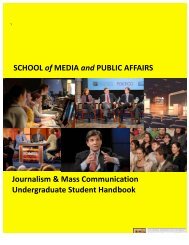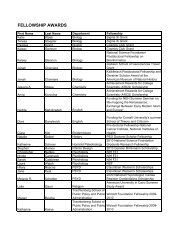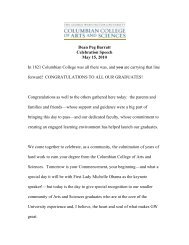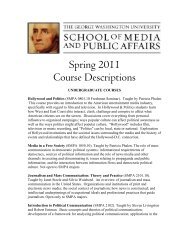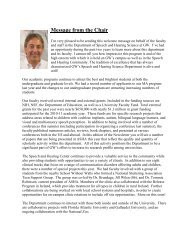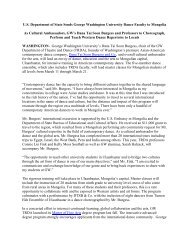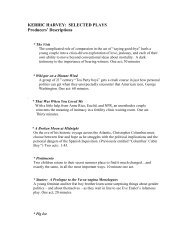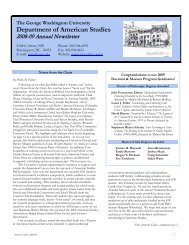Media Coverage and a Federal Grand Jury
Media Coverage and a Federal Grand Jury
Media Coverage and a Federal Grand Jury
Create successful ePaper yourself
Turn your PDF publications into a flip-book with our unique Google optimized e-Paper software.
trash bins, when a man he had never met before simply walked in off<br />
the street <strong>and</strong> offered the original carbon paper used to make copies<br />
of the typed transcripts. 51 “We were so excited we didn’t know what<br />
to do,” recalled Les Whitten, a reporter who worked for Anderson. 52<br />
Although the walk-in source wanted money in exchange, Anderson<br />
delicately finessed his request for a bribe. “I never pay for documents,”<br />
the columnist said later, “but we had a fish on the line <strong>and</strong> I<br />
didn’t want to lose him…. We appealed to the man’s patriotism, <strong>and</strong><br />
he ultimately gave us the transcripts gratis.” 53<br />
Before acquiring the sensitive documents, Anderson reporter<br />
Whitten drove the source around downtown Washington in his<br />
car while colleague Jack Cloherty watched “to make sure that we<br />
weren’t being followed.” As Whitten collected the paperwork, Cloherty<br />
acted as a “third-rate Mob look-out in a cloak <strong>and</strong> dagger<br />
operation whose job was to make sure nobody saw us. We raced<br />
back to the office” with the carbon papers, Cloherty remembered,<br />
so that Anderson’s secretary “could tape them to a lampshade” to<br />
view <strong>and</strong> then re-type them on her own typewriter: “We all had dirty<br />
carbon h<strong>and</strong>s. I had to scrub mine several times to get the ink off.”<br />
Anderson’s staff worked round-the-clock for the next week typing<br />
<strong>and</strong> collating the gr<strong>and</strong> jury transcripts. 54<br />
At least one federal judge was so angry about the leak that he<br />
urged prosecutors to try to find a way to imprison Anderson. The<br />
judge suggested granting the columnist immunity from prosecution<br />
in order to force him to reveal his source to the gr<strong>and</strong> jury. If Anderson<br />
still refused, the judge urged jailing the reporter for contempt<br />
of court <strong>and</strong> filing additional charges against him for obstruction of<br />
justice. 55 Anderson fully expected to go to prison: “When you’ve got<br />
all the judges in the District of Columbia <strong>and</strong> the U.S. attorney on<br />
your tail, <strong>and</strong> you know that the White House is using every armtwisting<br />
method it knows, you’re not too sure you’re gonna win.” 56<br />
Anderson reporter Whitten began burning sensitive documents<br />
in his fireplace at home to prevent the government from seizing<br />
them. Whitten said that he <strong>and</strong> Anderson devised a plan to keep<br />
the FBI from confiscating their files by locking themselves in their<br />
office <strong>and</strong> “chucking all the stuff out the window…blocking them<br />
with our bodies. I know it sounds romantic <strong>and</strong> crazy, these two<br />
overweight middle-aged people…physically trying to keep them<br />
from getting into our files…but we were determined to do this…as<br />
a sort of tribute to the First Amendment.” 57<br />
But the Nixon administration decided not to make a martyr out<br />
of the columnist. “I don’t want to go too far there, because I don’t<br />
16 • American Journalism —



